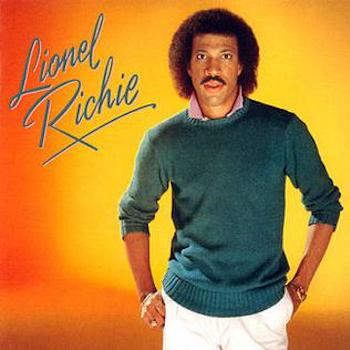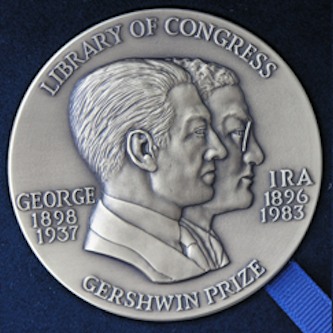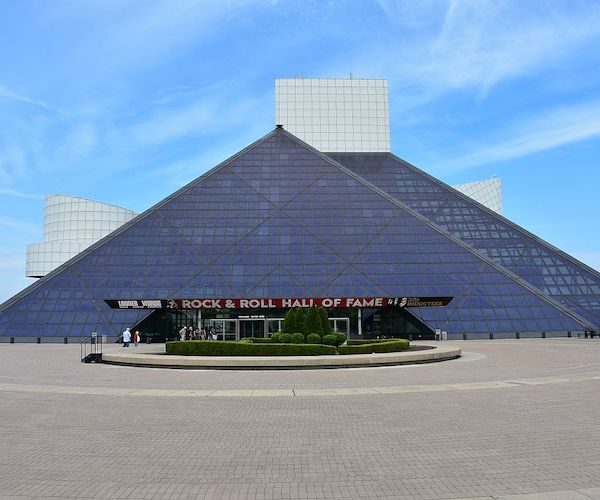Music Commentary: The Gershwin Prize and the Rock & Roll Hall of Fame — Selling Out Quality for Profit
By Daniel Gewertz
Both the Gershwin Prize and the Rock & Roll Hall of Fame exist to glorify popular song. Both, in fairly short order, relaxed their initial high artistic standards.

What does crooner Lionel Richie have to do with to do with rock ‘n roll?
May has been a fantastic month for Lionel Richie. First, Richie was announced as this year’s recipient of the Library of Congress’s prestigious Gershwin Prize for American Popular Song. Then he was chosen as a 2022 inductee in the performer category of the Rock & Roll Hall of Fame. To Richie, it must feel like “Endless Love.” What a boost for the rep of this longtime R & B balladeer and present-day American Idol judge!
The reputation of American music? It’ll survive.
Both the Gershwin and the Hall exist to glorify popular song. Both, in fairly short order, relaxed their initial high artistic standards. Despite the seeming cachet of the two TV awards shows that promulgate these awards, the key word here is show: neither one defines the essence of the art form. They are public relations schemes, partly invented to lend prestige to enterprises in need of a boost. Think of all the British literary, film, and TV awards that were birthed post WWII, in order to counter America’s rising cultural preeminence.
What in the world has Richie — a silky-smooth R & B crooner — to do with rock and roll? Questions like this have been asked many times about the Hall in recent years: an institution that purposefully ignores any intelligible definition of their chosen genre. Apparently more desperate than ever to expand their popular scope — call it fame for fame’s sake — they’ve selected in 2022 a performer group where the majority of the inductees have no discernible connection to rock. In addition to Richie, there are Dolly Parton, Eminem, and Carly Simon. (Parton tried to bow out, saying she never considered herself a rock singer or writer, and didn’t want to take the award away from someone who is. They basically told her she’s in whether she likes it or not!) This year’s three actual rock acts are Duran Duran, Pat Benatar & Neil Giraldo, and the Eurythmics.
It is clear by now that muddying the definitions of pop music is for the sake of the Hall’s financial gain. Since 1986, there have been over 350 inductees added to the Hall. Ironically, by ignoring the meaning of rock and roll, the Hall has latched onto one of rock’s key traits — a defiant “fuck you” attitude. The world’s comprehension of the genre of rock be damned! It’s a shrewd, if lamentable move. It is one thing to say Woody Guthrie, Robert Johnson, or the Carter Family deserve a spot as ancestors of rock; quite another to claim that rock is now everywhere and anything. The original meaning of the word fame was more about reputation and achievement than simple celebrity (thus the term house of ill-fame.) The Hall’s aim, meanwhile, is to become the celebrity of tourist attractions, an ever-expanding Disneyland for adults. (I loved the Zombies when I was 15, but I never expected them to show up in a Hall of Fame 50+ years later, considering a meager total of three hits to their name.)
Question: If a shiny statue is tarnished, does it lose its appeal?
Answer: Not if it is still on national TV.
 I admit that some of my aesthetics are based on my age (baby boomer), my birthplace (New York City) and possibly my race (white.) Perhaps that all enters into my enthusiasm for only the first batch of Gershwin Prize winners — Paul Simon, Burt Bacharach & Hal David, Stevie Wonder, Willie Nelson, Carole King, Smokey Robinson, and even the one non-American, Paul McCartney. They are esteemed songwriters all. Tony Bennett is, of course, a song interpreter, but a singular force in keeping the Great American Songbook alive. As far as I’m concerned, Gloria Estefan, Garth Brooks, and Richie aren’t in their league. And haven’t Estefan and Richie already been “governmentally” awarded enough with their recent Kennedy Center Honors? I’m reminded of our American generals, chests packed with medals.
I admit that some of my aesthetics are based on my age (baby boomer), my birthplace (New York City) and possibly my race (white.) Perhaps that all enters into my enthusiasm for only the first batch of Gershwin Prize winners — Paul Simon, Burt Bacharach & Hal David, Stevie Wonder, Willie Nelson, Carole King, Smokey Robinson, and even the one non-American, Paul McCartney. They are esteemed songwriters all. Tony Bennett is, of course, a song interpreter, but a singular force in keeping the Great American Songbook alive. As far as I’m concerned, Gloria Estefan, Garth Brooks, and Richie aren’t in their league. And haven’t Estefan and Richie already been “governmentally” awarded enough with their recent Kennedy Center Honors? I’m reminded of our American generals, chests packed with medals.
Beginning with his years in the Commodores, Richie certainly comes from a sturdy tradition. In my baby-boomer opinion, Sam Cooke possessed both soul and sweetness, while Richie has an elegant, sugared charm, with aspects of saccharine. He is an absolute expert at what he does, and he’s done it for 50 years. But does he deserve both the Kennedy Center Honor and the Gershwin Prize? At the heart of these awards is a desperate desire to beef up our country’s sense of itself — to choose a wide variety of popular icons.
When Neil Diamond garnered a Kennedy Center Honor a few years ago I felt a similar lack of enthusiasm. Yes, he’s an insanely catchy hit-maker with oodles of talent, a tuneful ace with an amalgam of influences, a stylist that Robbie Robertson astutely called a latter-day link between Elvis and Sinatra. I sometimes hum his songs. But to me he’s also cheesy. Corny. A guilty pleasure. I guess I’m a snob. When the US government picks its cultural heroes, I’d be naive to expect perfect taste. Were Emilio and Gloria Estefan picked for a Gershwin Prize because they needed Latinx recipients, and this was two for the price of one? If so, why not? Seems like a profitable idea for a country still bragging about being a melting pot.
The popular arts in America — maybe all the arts — have lost an awful lot of luster in the last 40 years. Whether you agree with that unhappy opinion or not, it is hard to deny that there exists a vested interest in bolstering the belief that everything is hunky-dory with the culture, and, even more importantly, that there is no appreciable difference between the popular and the great. Democracy may be eons away from a golden age, but thank goodness there’s plenty of gold, and golden statues, to go around! The demolishing of class distinction in the arts masquerades as social progress: as a type of media-driven “power to the people” — one that, not coincidentally, adds to the coffers of the billionaire class. Simply put: in America, if it sells it cannot smell.

The Rock & Roll Hall of Fame — Muddying the definitions of pop music is for the sake of the institution’s financial gain.
There once existed a widely accepted idea that there might be elements of trendy, ephemeral pop culture both massively popular and unworthy of the highest accolades. It harkens back to the early years of the 20th century, when striving, upwardly mobile immigrants believed that a cultural “touch of class” could be a stepping stone to American success. It was a time when great 19th-century literature was frequently remade as popular film; a time when classical music — or pop variations — were heard regularly on commercial radio and movie soundtracks. That cultural attraction to “high-class” or “serious” music was certainly a hallmark of the Gershwin brothers’ family home. That Ira and George Gershwin were equally inspired by hot jazz and pop song was essential to their success.
I think what might be most galling about the Gershwin Prize is the name itself. With a name like that, fudging on quality is a sin. Ira Gershwin was a wonderful lyricist, one sublimely in touch with what was once termed “the common man.” His brother George, though, seemed supernatural. In a mere 18 years, George became the original crossover American genius, the king of Tin Pan Alley, Broadway, and the emerging sphere of American classical music. The golden boy was gone by age 38. When Paul Simon was picked as the original Gershwin winner, it seemed a choice respectful of the name. Yet how could this prize continue to live up to that name… to continue to pick equally qualified winners in perpetuity, especially considering the gradual draining of the American pop talent pool? Nominally, it would’ve been better to choose a brilliant 20th-century talent who could use more posthumous fame. I’d vote for the Jerome Kern Prize.
For 30 years, Daniel Gewertz wrote about music, theater and movies for the Boston Herald, among other periodicals. More recently, he’s published personal essays, taught memoir writing, and participated in the local storytelling scene. In the 1970s, at Boston University, he was best known for his Elvis Presley imitation.

Lionel Richie started with the Commodores performing pop and rock music before he went solo. I remember the days.